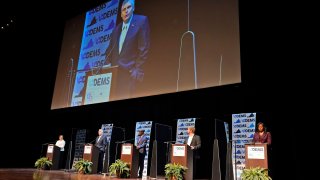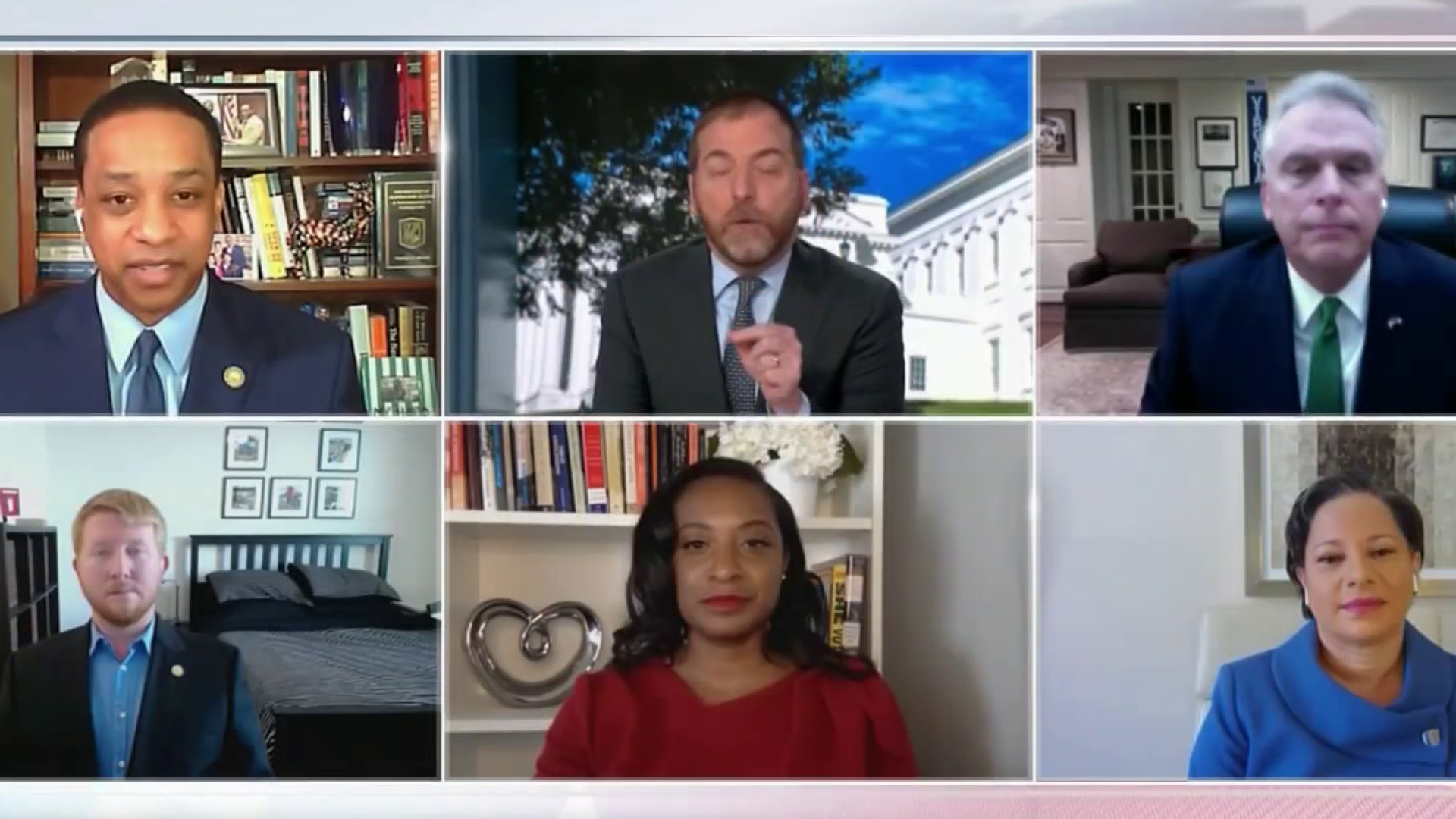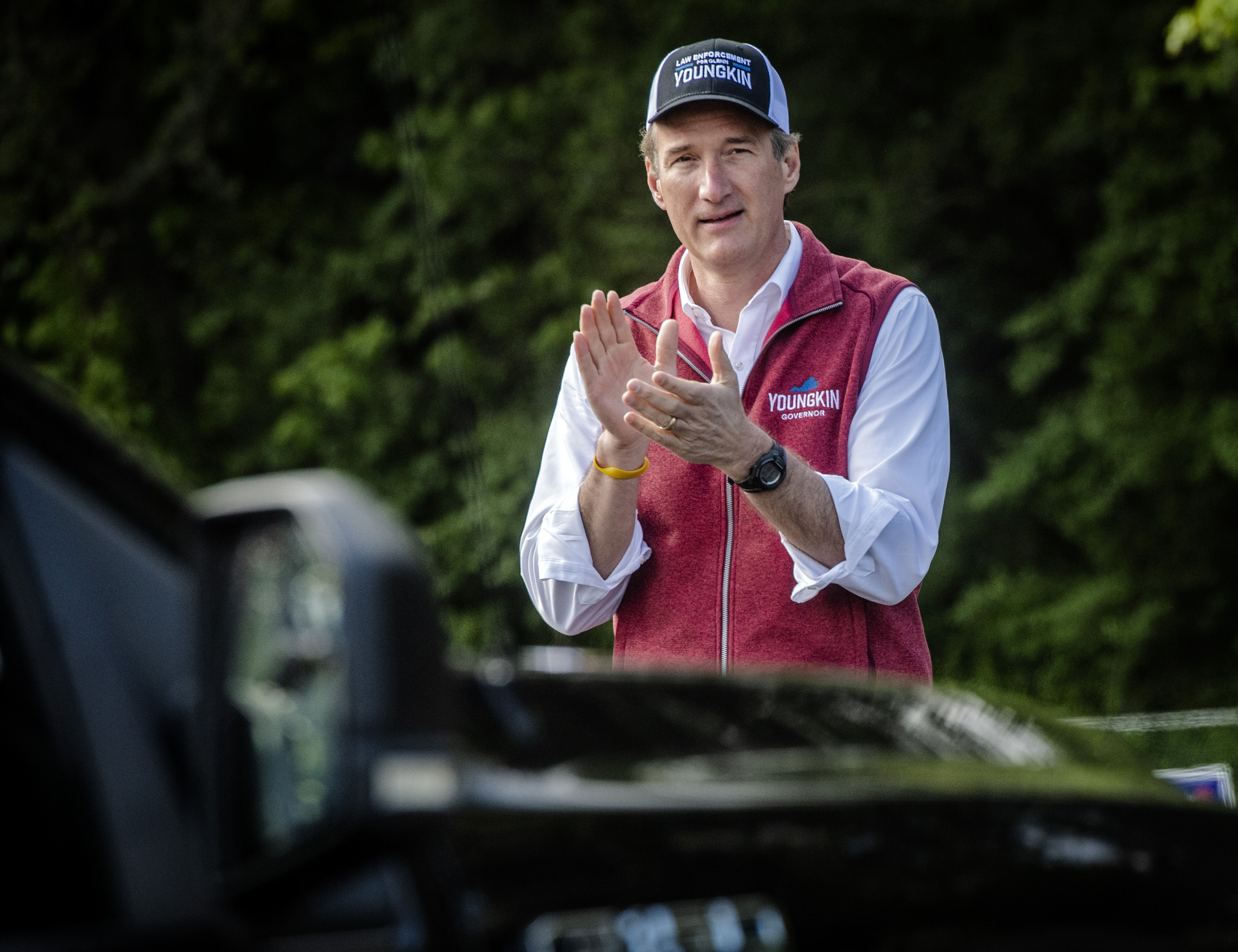
Terry McAuliffe's opponents in the Democratic nomination contest for Virginia governor sought to make the case during a debate Tuesday that he won’t energize voters in November, while the frontrunning former governor focused on his record and GOP nominee Glenn Youngkin.
Democratic voters “need a nominee who will excite and expand" the base, said state Sen. Jennifer McClellan, one of McAuliffe’s four primary opponents. “It’s not enough to give someone something to vote against.”
The televised, hour-long debate at Christopher Newport University in Newport News was the fourth and final one before next week's primary. Republicans, who will be looking this fall to break a more than decade-long losing streak in statewide elections, picked their nominees for this year's three statewide races during an unassembled convention in May.
McAuliffe, who is widely seen as the Democratic frontrunner, is seeking another term after holding the office from 2014 to 2018.
We're making it easier for you to find stories that matter with our new newsletter — The 4Front. Sign up here and get news that is important for you to your inbox.
In addition to McClellan, also seeking the nomination are: former Del. Jennifer Carroll Foy, Lt. Gov. Justin Fairfax and Del. Lee Carter. Each went after McAuliffe directly at various points in the debate.
For his part, McAuliffe avoided attacking his opponents and generally avoided sharp rebuttals to their attacks, instead focusing on his accomplishments while in office, including his record on job creation and his work to revive the Port of Virginia. He promised if elected again to create the nation's best economy and education system.
He went after Youngkin, a businessman and political newcomer, calling him an “extreme right-wing Republican” and loyalist to former President Donald Trump who would end abortion access and loosen gun laws.
Carter, a Marine veteran, self-described socialist and member of the Virginia House running well to the left of the rest of the field, criticized McAuliffe for invoking the Republicans so often.
“We can’t just be a party that is opposed to the other guys," he said. "We have to fight for something."
McAuliffe responded by pointing to his numerous, lengthy policy proposals.
“If I tell you I'm going to do something, I promise you I'm going to do it," he said.
Carroll Foy, a former state delegate who resigned to focus on her bid for governor, sought to convey a message of empathy with working Virginians, saying she's been in their shoes and would fight for them.
“Most of us have legislative successes, but I have the lived experience – working multiple minimum wage jobs just to get by, being unable to afford the high cost of health care, living in communities that have been redlined,” she said.
She described Youngkin and McAuliffe as “wealthy, out-of-touch millionaire politicians.”
During a question about institutional racism, McAuliffe said it was a topic impossible to address in the 30 allotted seconds, though he gave several examples from his policy platform specifically titled “Lifting up Black Virginians,” including improving access to capital and reducing education disparities.
Fairfax, who spoke next, disagreed that the question required a lengthy answer. He then went on to address the fact that McAuliffe faces three Black opponents in the race — Carroll Foy and McClellan in addition to him — saying: “When African Americans are shut out of opportunities repeatedly it sends a signal to people about what our system truly values and who truly has the opportunity to succeed in our society."
McClellan used her answers to make the case that she has both the policy experience and fresh perspective to excite voters in November, and she told the audience she wants to restore Virginians' belief in the ability of government to solve problems.
“People call a state government agency or a state government official to solve a problem. And if we are not prepared to solve the problem because we have let our systems atrophy then we are the problem," she said during an answer to a question about the failure of the Virginia Employment Commission to promptly respond to more complex unemployment claims.
Youngkin shared his take on the debate with a thread on Twitter, highlighting points of agreement with each opponent's attacks against McAuliffe.
He said the former governor was “clearly struggling to earn the confidence of his party or demonstrate that he has a firm grasp of the facts.”
Virginia and New Jersey are the only states holding gubernatorial elections this year, and only Virginia has an open seat. Gov. Ralph Northam, like all Virginia governors, is prohibited from seeking a second consecutive term.
The commonwealth’s off-year elections typically draw outsized national attention as a test of the strengths and trend lines for both parties leading in the midterms.
The primary is Tuesday, June 8, and early voting is already underway.



